

After 16 years of repeated attacks on press freedom under Frank Bainimarama, pressure on Fiji's media has eased since Sitiveni Rabuka succeeded the former military and coup leader.
Photo/Fiji Broadcasting Commission
Journalists use talanoa, tradition to find their voice
A student journalist from Australia travelled to Fiji to find out how reporters there disseminate information.

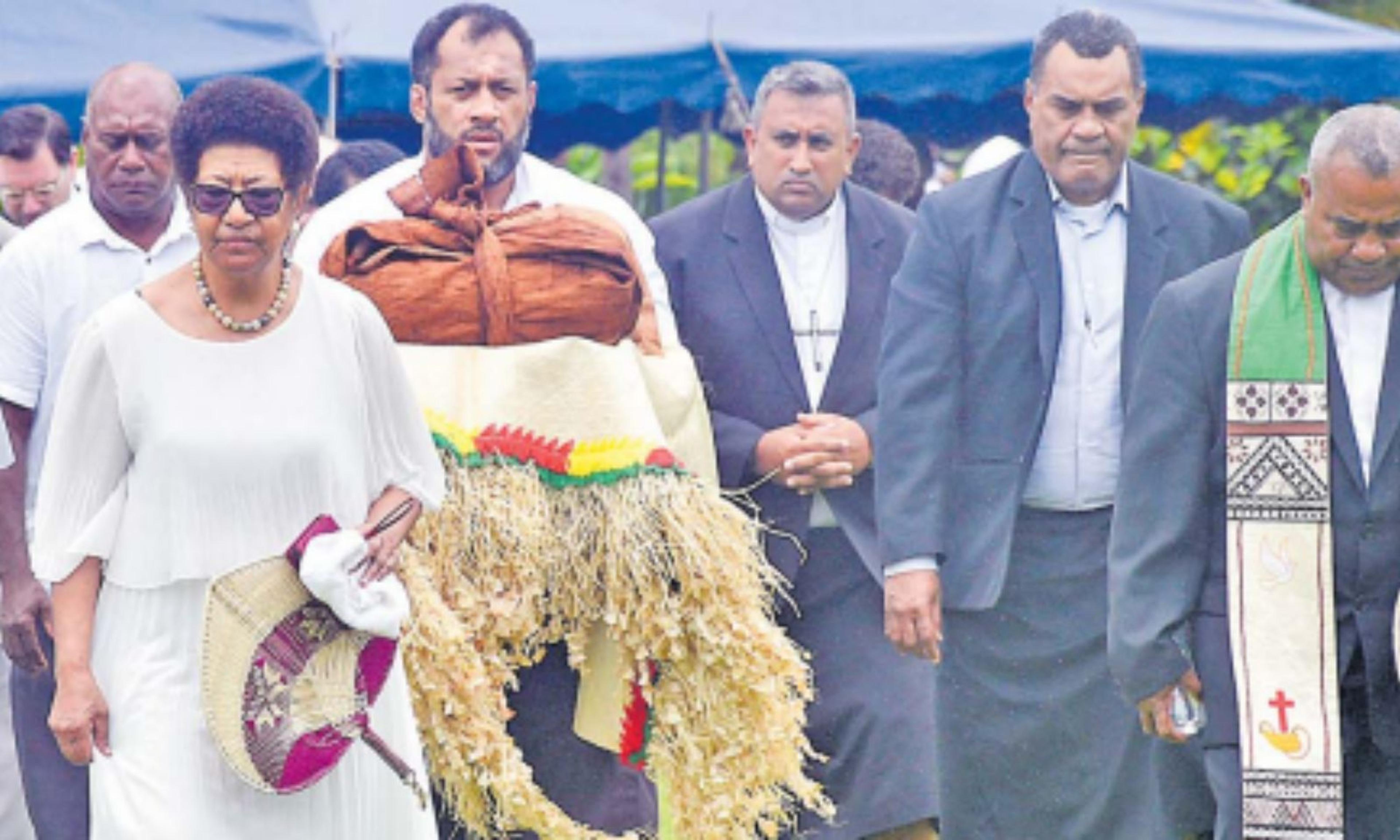
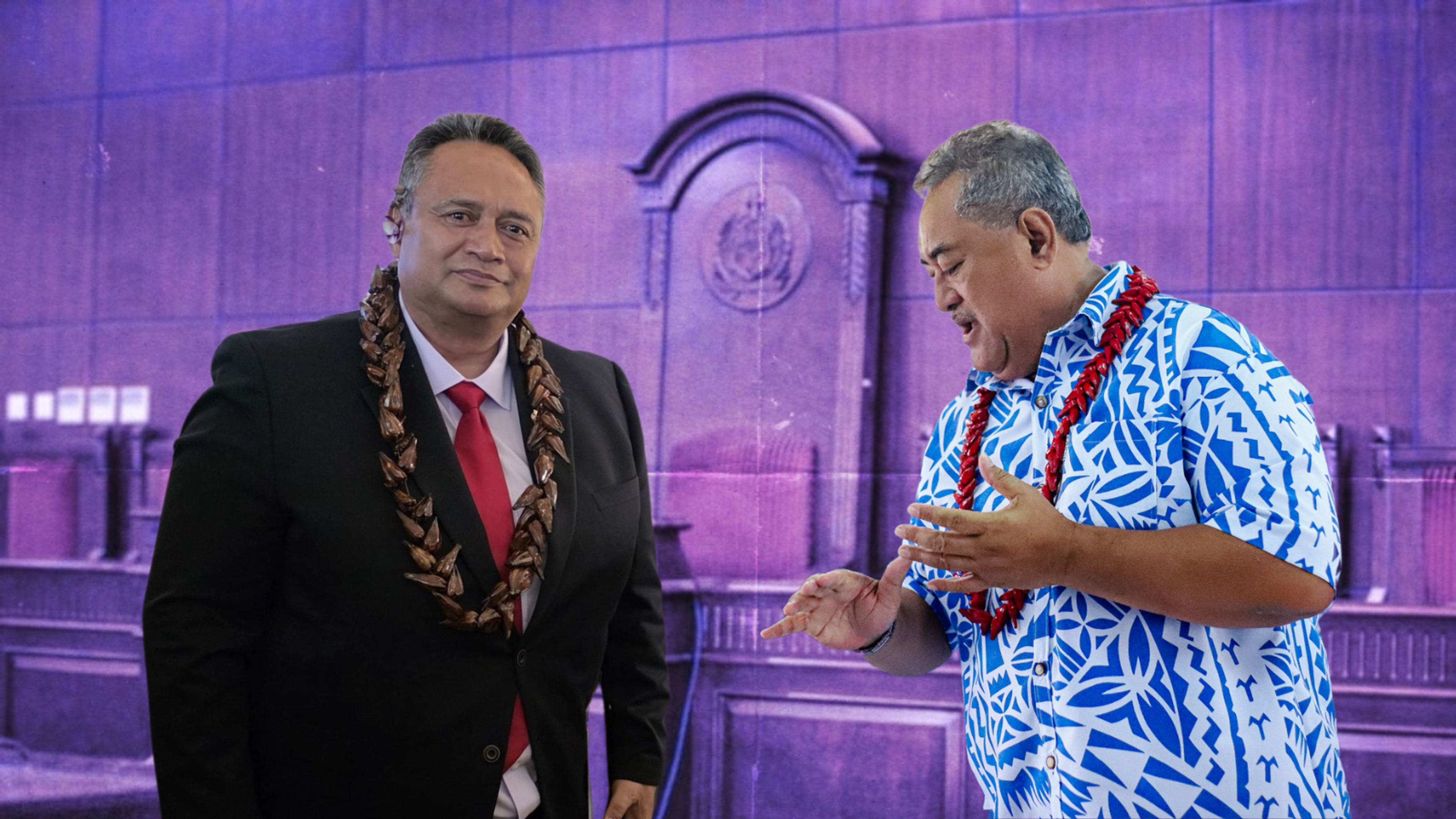
Sāmoa court blocks withdrawal of Falealili I election petitions
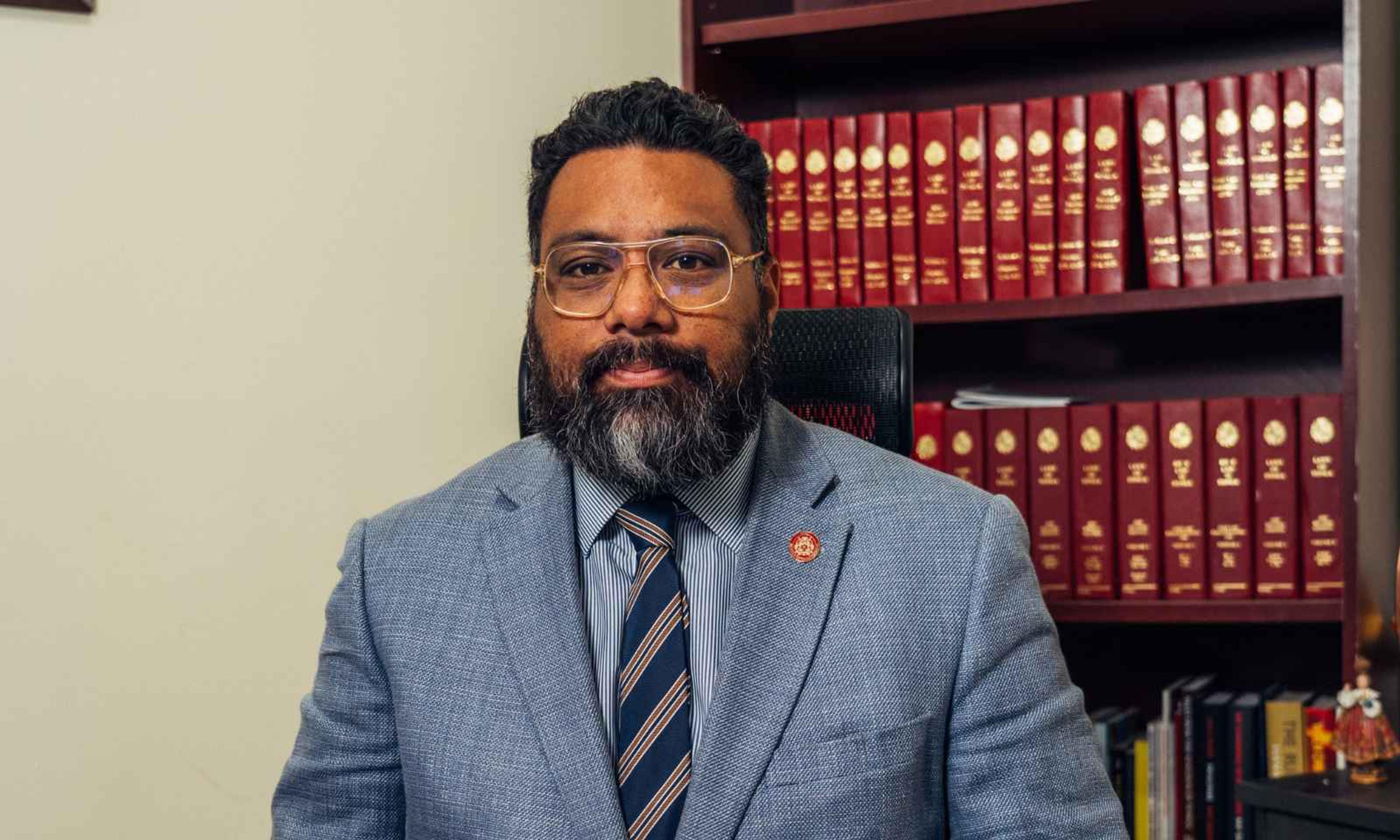

Pacific research marks 25 years of tracking children into adulthood


Sāmoa court blocks withdrawal of Falealili I election petitions

As climate change, exploited fisheries, declining human rights, decolonisation, and geopolitics challenge the Pacific, approaches to news media and journalism education in the region are also under scrutiny.
In Fiji, newsrooms can now publish analytical reporting without being threatened. This is after the country's 'draconian' media law was repealed in April last year by the new government.
With a greater chance of their stories being told, journalists in Fiji know the importance of digging below the surface of issues and uncovering the injustices with their work, as Australian student journalist Mathilda Yates reveals in her recent study.
Yates from the Queensland University of Technology travelled to Fiji in February as part of the Australian government's New Colombo Plan Mobility Programme.
While in Suva, Yates interviewed several media representatives and student journalists about how they tackle reporting the news while respecting their vanua - the land, and culture.
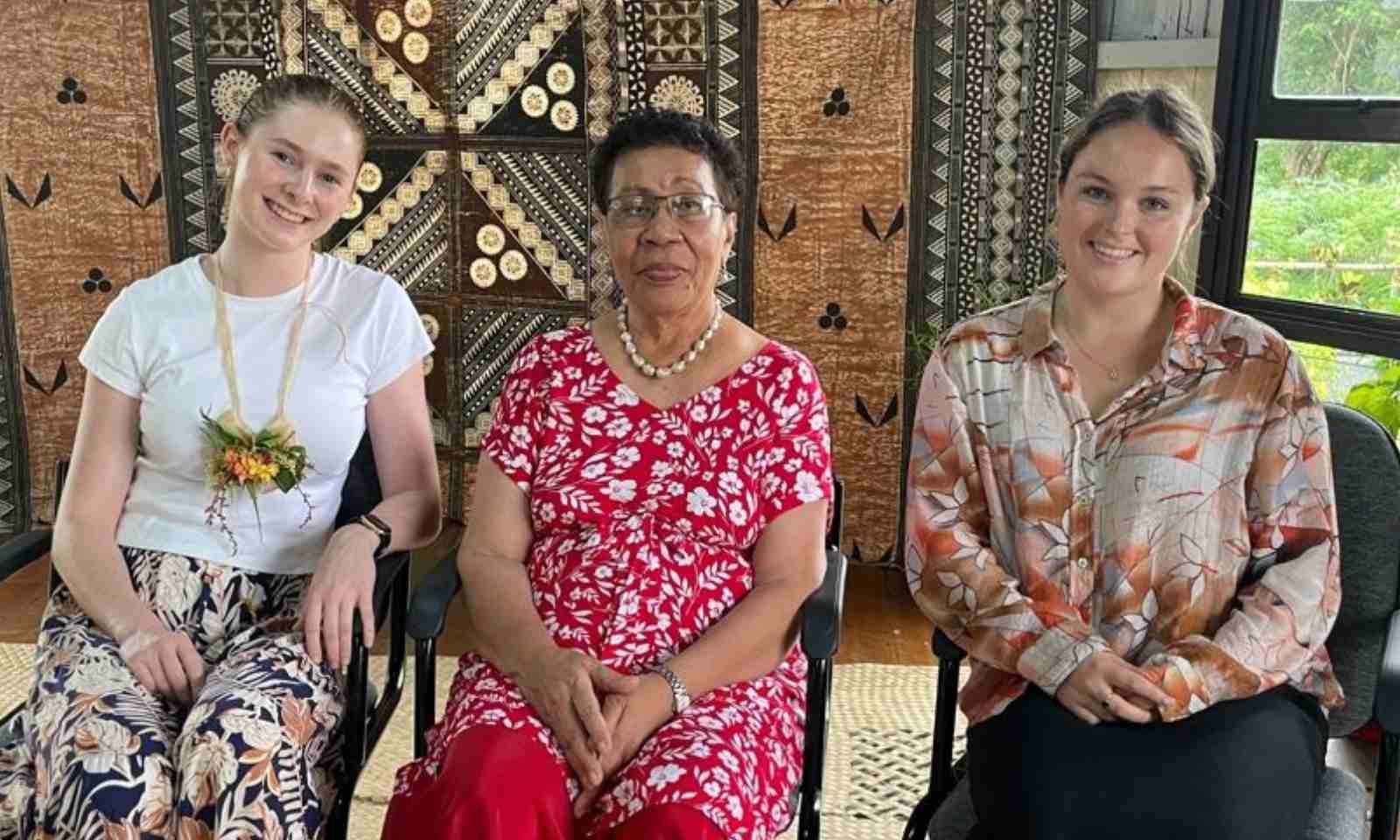
Matilda Yates, right, and her colleague Georgia, left, with Adi Finau Tabakaucoro, the president of the Soqosoqo Vakamarama iTaukei. Photo/Matilda Yates
According to Reporters without Borders' press freedom index, which compares the level of freedom enjoyed by media and journalists in 180 countries, New Zealand has the best ranking in the region at 13, Samoa is at 19, Australia at 27, Fiji at 44, Tonga at 45, and Papua New Guinea is the worst at 91.
A group of regional and international media representatives met in Fiji last month to discuss some of the challenges and opportunities facing journalists in the Pacific. They were told that newsrooms need to evolve with the times.
University-based journalism education was introduced to the Pacific in PNG at its independence in 1975 and in Fiji at the University of the South Pacific in 1987.
Technical vocational educational and training institutions have been a more recent addition to the region.
Some scholars argue there is little difference between Pacific and Western approaches to journalism, or that some journalism schools are too focused on Western media education, while others assert there is a distinctive style of journalism in Oceania with cultural variations based on the country where it is practiced and parallels with some approaches in Asia such as “mindful journalism.”
A paper published in February by Cambridge University in the United Kingdom examined a “Pacific way” journalism debate, which echoed a regional political concept coined by the late Fijian statesman Ratu Sir Kamisese Mara.
The paper, Regionalism the 'Pacific Way', also argued for a greater appreciation of the complexities of media cultures in Pacific island nations and proposed a more nuanced, reflexive approach to journalism in the region.
This is reflected in a “talanoa journalism” model that Ratu Sir Kamisese advocated as a more culturally appropriate benchmark than monocultural media templates.
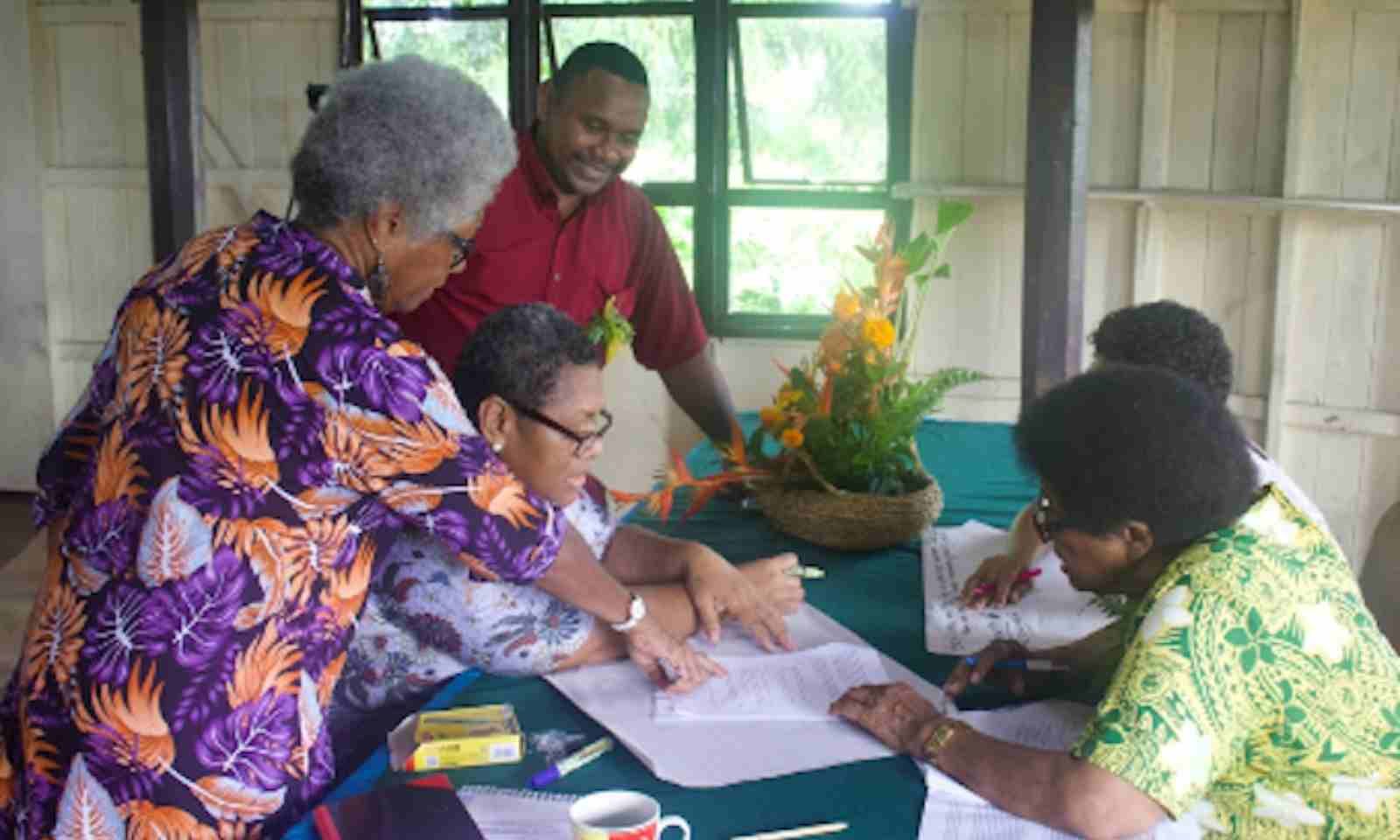
Fiji's iTaukei leaders discuss contemporary issues such as women's representation in Fijian society. Photo/Matilda Yates
In Yates' report, she found that not everyone in the media industry in Fiji held the same sentiments about journalism and storytelling.
“From a white perspective it is journalism but for us, it is actually storytelling,” student journalist Viliame Tawanakoro told Yates.
“In the Pacific, we call it talanoa. It hasn’t changed the gist of journalism, but it has actually helped journalism as a whole because we have a way of disseminating information.”
Tawanakoro said Fijians used storytelling or talanoa to communicate “information or a message from one village to another”.
He said that storytelling practices guided how he wrote his stories.
“Storytelling is about having a conversation, so you can have an understanding of what you are trying to pursue."
Research by New Zealand author and journalist David Robie, while he was Auckland University of Technology’s Pacific Media Centre director, revealed the power of talanoa as a tool for effective reporting of the Pacific with “context and nuance”.
Robie's findings were published in his book, Don’t Spoil My Beautiful Face: Media, Mayhem and Human Rights in the Pacific, where he also revealed the “dilemmas of cross-cultural reporting” in Fiji.
In her book, The Pacific Journalist: A Practical Guide, Fijian journalist Seona Smiles wrote that journalists in the country faced a cultural and potentially even a moral conflict.
Watch David Robie's interview on Pacific Mornings below.
"Deep-rooted beliefs in South Pacific societies about respect for authority could translate into a lack of accountability and transparency on behalf of the powerful,” Smiles wrote.
Another student journalist Brittany Nawaqatabu said that as a young journalist “brought up not to ask too many questions” she faced this internal conflict.
"It’s always that battle between culture and having to get your job done and having to manoeuvre the situation and knowing when to put yourself out there and when to know where culture comes in,” Nawaqatabu told Yates.
For Samantha Magick, the Editor of the Pacific's longest-surviving monthly magazine, Islands Business, managers and leaders in Fiji's newsrooms need deep awareness of cultural norms and protocols.
Magick told Yates of the importance of hiring a diverse staff so that the correct journalist could be sent to cover what may be a culturally sensitive story.
“I unwittingly assigned someone to cover a traditional ceremony and I didn’t realise that their status within that community actually made it very difficult for them to do that."
In exploring journalism in the Pacific, Dick Rooney and his Divine Word University colleagues found that a Western understanding of journalism could not be transplanted “into a society which has very different societal needs”.
Magick said journalism in Fiji was like reporting in a small town “but with a lot more complexity".
"The degree of separation isn’t six it’s like two”, she said meant that it was a vital consideration of editors to ensure no conflict existed between the journalists and the community they were being sent to.
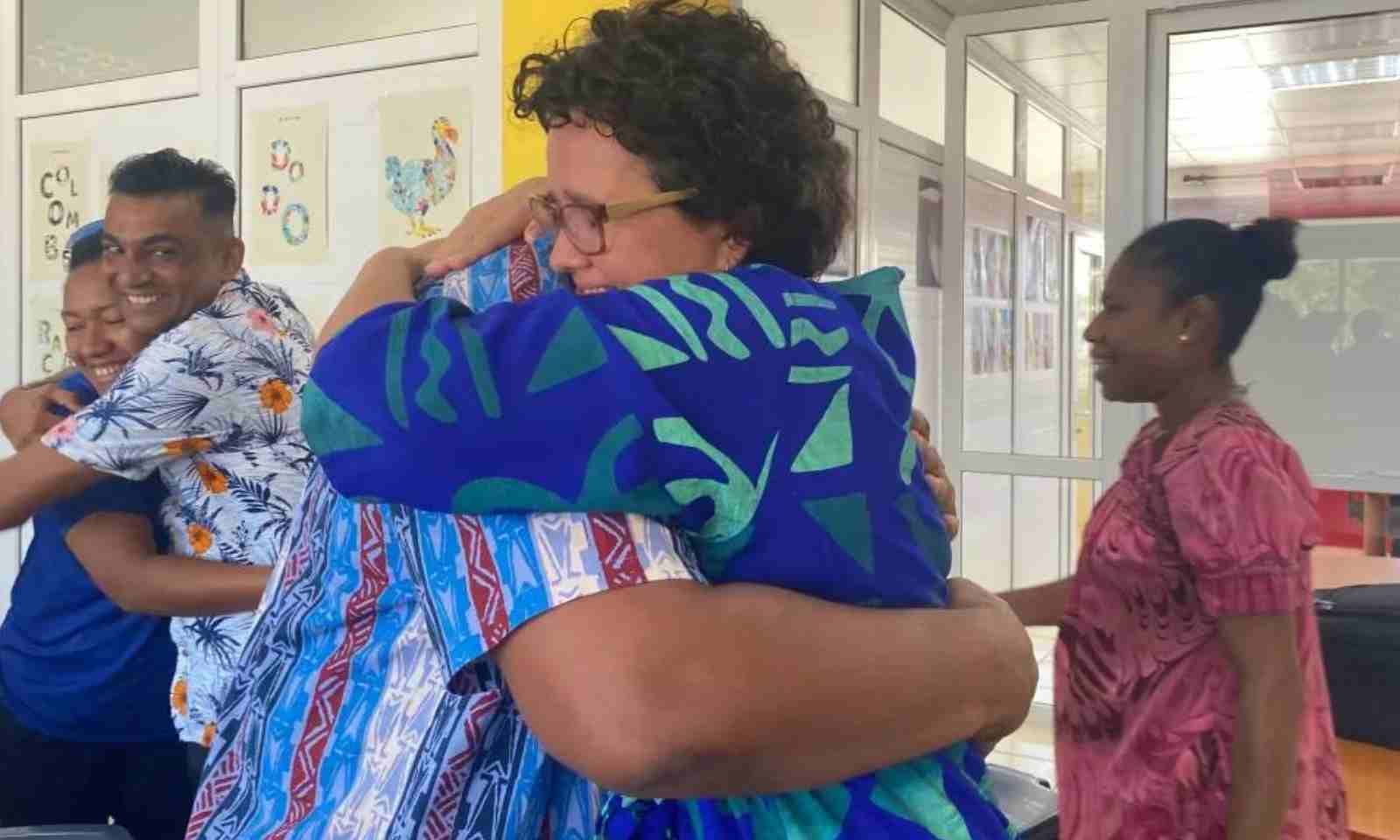
Samantha Magick celebrates with colleagues following the repealing of Fiji's media law in 2023. Photo/RNZ
"It is incumbent on an editor to understand the cultural norms and expectations that may be imposed on a journalist on an assignment and to ensure they have a diverse newsroom of all ethnicities, not just the iTaukei but also the Indo-Fijian."
Yates and her colleague Georgia also met with members of Fiji's largest indigenous women groups, the Soqosoqo Vakamarama iTaukei (SSV), where they both learned the importance of strategic advocacy to achieve real change including the importance of preserving the iTaukei culture and tradition.
She said the SSV discussed the contemporary issues affecting women and how best they could create change while working to get members into the provincial councils and the Council of Chiefs.
Yates said that as the news media and society modernised and more diverse information became available, Fijian women found a voice through journalism.
Nawaqatabu said one cultural norm that she battled with constantly was “women are expected to not speak”.
“Pursuing journalism gives us that voice to cover stories that mean a lot to us, and the country as a whole, to communicate that voice that we didn’t initially have in the previous generation."
Tawanakoro agreed: “Women have found a voice and are more vocal about what they want."
While the intersection of tradition, culture, and journalism in Fiji continued, he said journalists could operate effectively if they understood culture and protocols.
“As a journalist, you have to acknowledge there is a tradition and there is a culture. If you respect the culture, the tradition, the vanua (earth, region, spot, place-to-be or come from) they will respect you.”
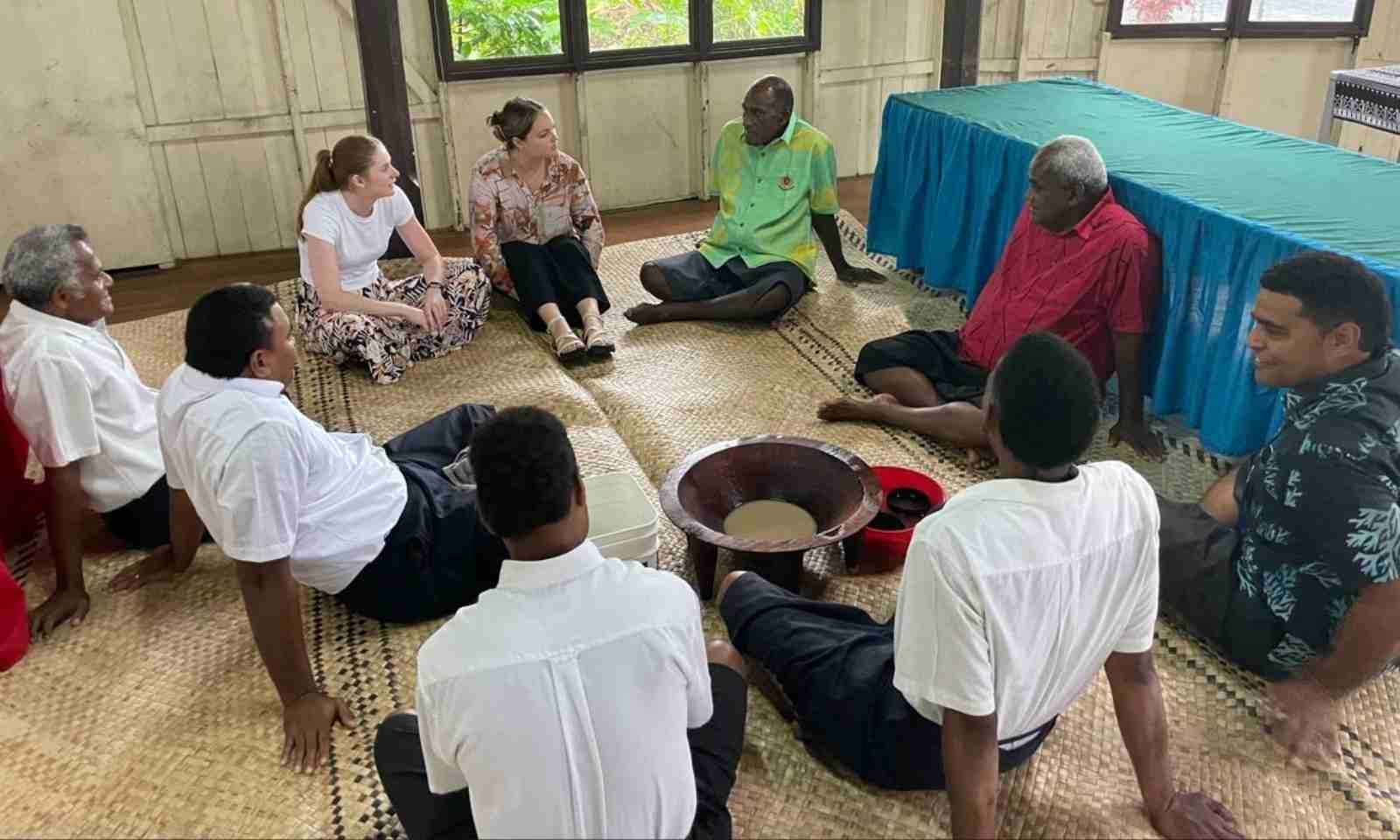
During their stay in Fiji, Matilda and colleague Georgia met with various non-profit organisations. Photo/Matilda Yates